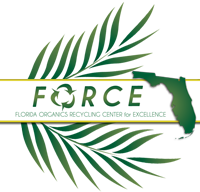The links below (in green) list educational institutions and compost related organizations who offer organics training courses and workshops. Events are held throughout the United States.
NATIONAL COMPOSTING TRAINING & WORKSHOPSThe USCC is a nonprofit professional association committed to the advancement of the composting industry. They offer courses and workshops, downloadable educational materials, and publications through their website. They have two certifications, their Certified Compost Operations Manager (CCOM™) and Certified Composting Professional (CCP™) courses. These courses are held at various educational institutions throughout the year. Please visit the USCC website and click on the button below for more information.
USCC-CREF COMPOST UNIVERSITY 2022 LAUNCH
In addition, “Compost University – is an online Learning Management System (LMS) which partners the US Composting Council (USCC) and the Compost Research and Education Foundation (CREF). This important platform offers individuals and companies in the organics industry the ability to achieve their continuing education unit (CEU) objectives and aspirations as well as overcome challenges caused by limited time and the ability to travel. Compost U combines industry-leading content from USCC and CREF training and education resources – such as conference talks, webinars, short classes and new longer advanced courses – all from professionals and educators like yourself. This new platform offers hundreds of digital coursework covering a wide range of business, science, management, safety, and technical topics which can be taken anytime and anywhere.” USCC. Click on the button below to get started.

The FORCE Project Team has designed a Florida‐specific training program for compost and yard waste facility operators (e.g., public, private, farmers) or those who plan to compost under the new DEP registration program. The free course has been developed in partnership with SWANA International, while focusing on Florida’s unique climate and organic wastes. Florida specific issues addressed include the physical characteristics of yard trash, vegetative food waste, and the impact of tropical climate on composting operations.
Major topics covered include:
PDF versions of the FORCE training module presentations are available below for download.
SWANA has worked in partnership with the USCC to develop a certification program for Compost Program Managers. Educational opportunities include a Compost Program Manager Preparation course. This three day course teaches how to effectively plan, design, and operate a composting facility.
Learning Objectives:
Learning Objectives:
Learning Objectives:
Learning Objectives:
Learning Objectives:
Learning Objectives:
Learning Objectives:
Learning Objectives:
Learning Objectives:
Learning Objectives:
Learning Objectives:
Learning Objectives:
© 2024 Kessler Consulting, Inc.